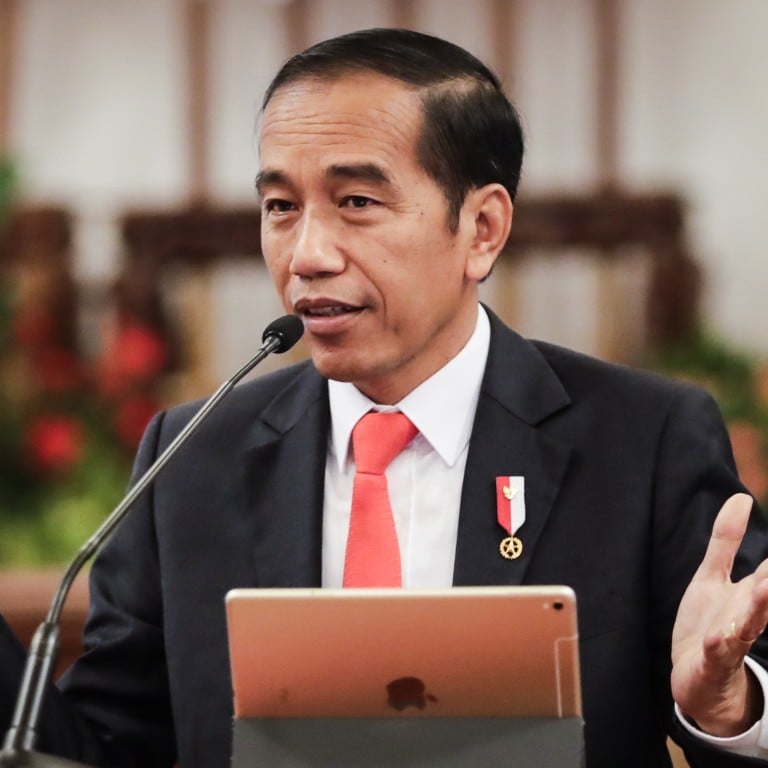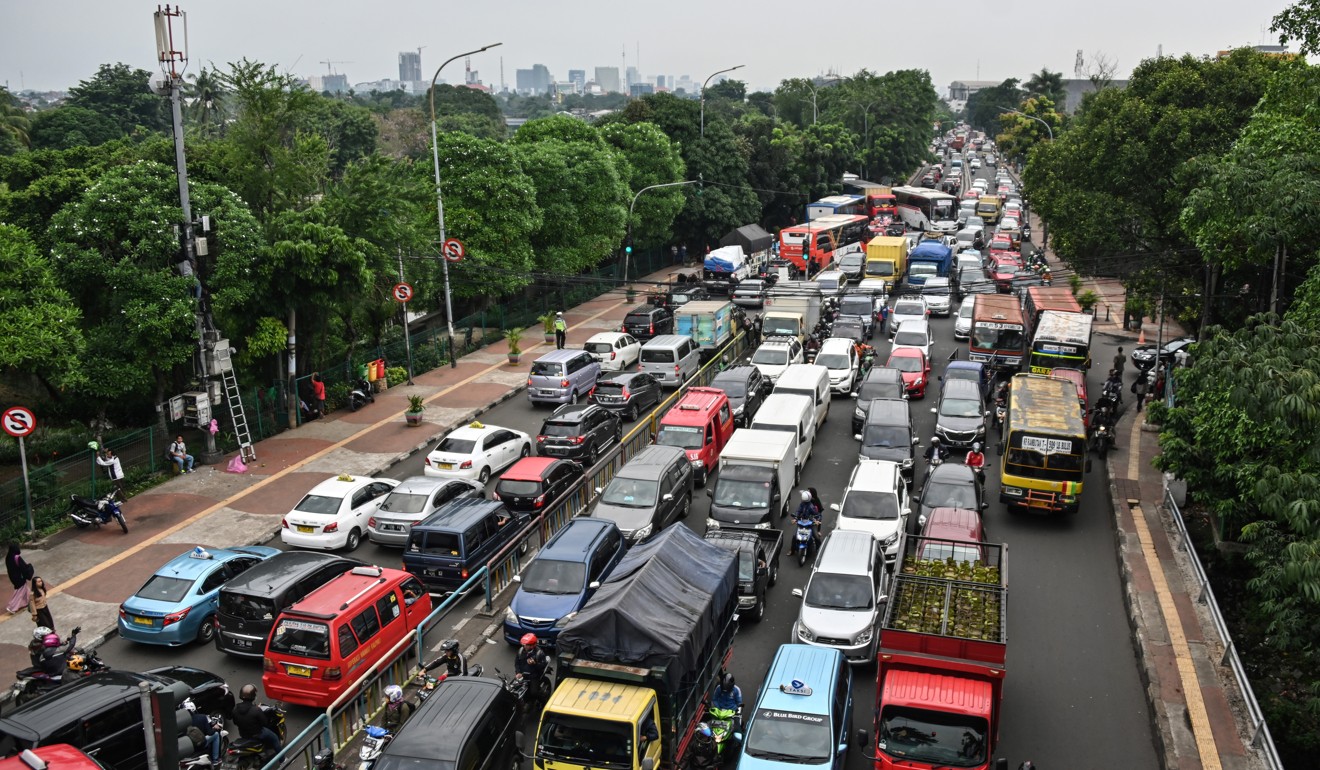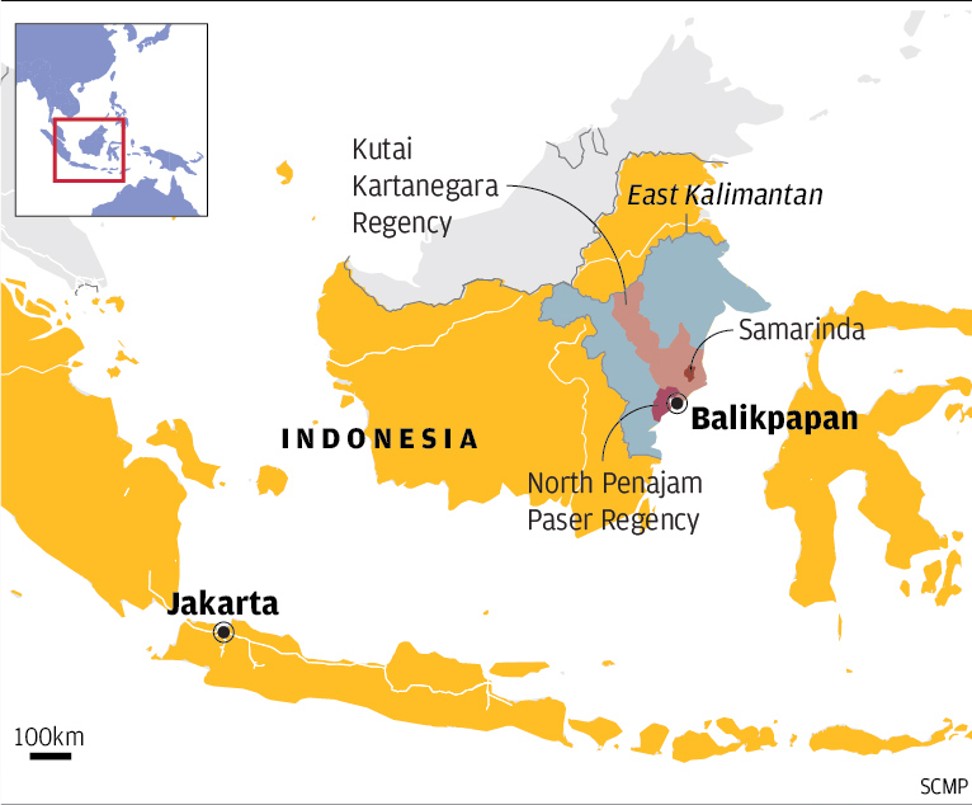
Will Arab, Japanese cash help Indonesia’s Joko Widodo realise his capital dream?
- Past presidents have considered relocating the capital, but with foreign investments on his side, Jokowi’s effort could well succeed
- Observers say it’s likely a done deal, but warn the government’s move to East Kalimantan will not solve Jakarta’s many woes, including traffic and pollution
For decades since its independence from the Dutch, successive Indonesian presidents have called for the country’s historic capital, Jakarta, to be relocated.
It was mostly political banter – the costs involved were mind-boggling – but no longer, it seems.
The new capital has been described as having gardens, modern amenities such as hospitals and education institutions and an environmentally-friendly transport system.
Big dreams, big money. So, will this decades-old dream actually come true? Sceptics abound, but according to some analysts, it’s a done deal.
Analyst Philips J. Vermonte says the move will happen, but two issues stand out.
It needs political support ... [to] ensure it will continue to be supported even after President Jokowi has ended his second term in 2024.
“First, moving a capital city is a long-term policy, and will not be completed in a few years,” said Vermonte, executive director of the Centre for Strategic and International Studies in Jakarta.
“As such, it needs political support, that is, a law that will ensure it will continue to be supported even after President Jokowi has ended his second term in 2024. The next president then will be required to continue the programme. Right now, such a law is non-existent,” he said.
“Second, there is a lack of public consultation. It will involve a lot of funding, the environmental effect for the locals, for example, and other public concerns,” Vermonte said. “Otherwise the new capital will just repeat the same problems of Jakarta.”

And Jakarta has many problems. First visited by Dutch traders in the 16th century, the modern-day capital, formerly known as Batavia, is a hectic city riddled with traffic, pollution and rainy-season flooding. Located in the bottom end of a massive river basin, Jakarta is sinking by nearly two centimetres per year and, by one estimate, could be partially under water by 2050.
In its defence, the city still has some old-school charm, including historic landmarks, wonderful street food and a tropical vibe.
How ethnic Chinese shaped the home of Indonesia’s new capital
That said, at least 66 people were reportedly killed in recent flooding in Jakarta and satellite towns in West Java and Banten provinces, where more than 25 million people live.
“I think it’s a good idea to have a government headquarters, or capital, in Kalimantan. But I don’t believe they think it will improve Jakarta – traffic, pollution. That won’t happen,” said Budi Lim, a prominent Indonesian architect and designer.
“If they have a good vision, that’s OK. But I don’t think it’s the way to improve Jakarta. If they want to spread development, then Kalimantan is good. We should distribute development all over Indonesia,” he said.

In the past, a move to the dead centre of the Indonesian archipelago – Borneo – would be dismissed as folly. A plan floated by former President Susilo Bambang Yudhoyono to relocate the capital to West Java went nowhere, in particular after media speculation that the land suggested was owned by the family of Aburizal Bakrie, a politician and business tycoon.
But Widodo, perhaps at the height of his political powers, chose a location that would part the country evenly and leave him free of favouritism.
Regardless, he has come in for some criticism.
“It’s happening so quickly. It’s super quick,” said Mohammad Danisworo, a prominent urban planner who has consulted five past Jakarta governors. “The government decided on a professional competition on the planning to be done. We can argue endlessly about that. I opposed the idea because you historically cannot be untouched from Jakarta. But it’s a political decision.”
Where China fits in Jokowi’s plan for US$33 billion new capital city
Indeed, Jakarta has been Indonesia’s political, social, cultural and entertainment capital for decades, and that’s not likely to change no matter where the national government’s new address is.
And with an estimated price tag of more than US$33 billion, it remains to be seen whether a new capital in eastern Borneo would be up and running by Widodo’s timetable of 2024 – the same year he leaves office.
“So, move your family? Move your life? If the capital is moved, you have to be there and the families will have to be there. It will be a serious social issue,” Danisworo said. “It’s much, much more serious. There are a lot of questions that have not been answered yet.”


